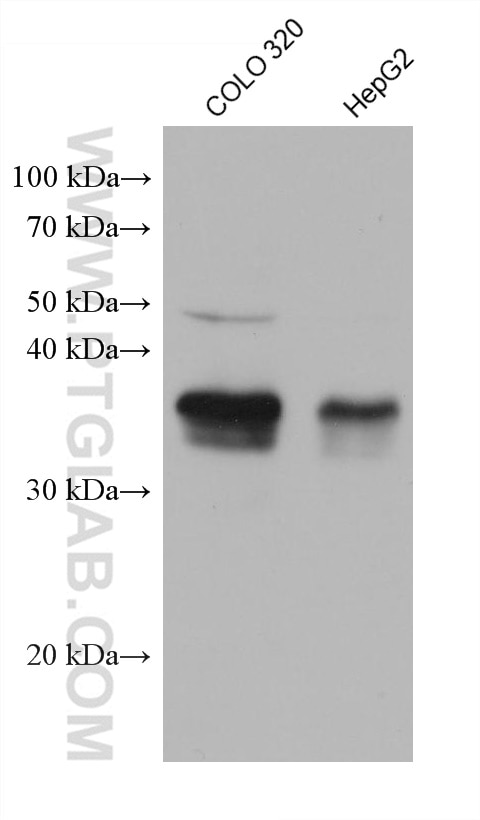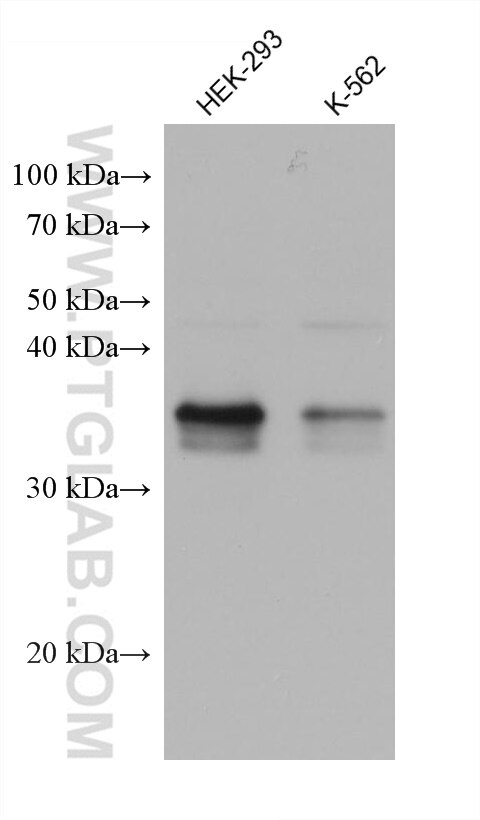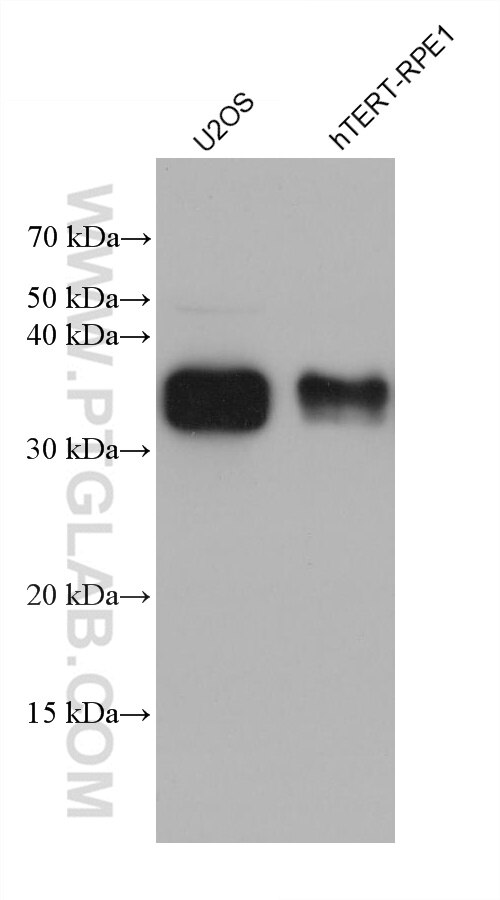Tested Applications
| Positive WB detected in | COLO 320 cells, HEK-293 cells, U2OS cells, HepG2 cells, K-562 cells, hTERT-RPE1 cells |
Recommended dilution
| Application | Dilution |
|---|---|
| Western Blot (WB) | WB : 1:2000-1:10000 |
| It is recommended that this reagent should be titrated in each testing system to obtain optimal results. | |
| Sample-dependent, Check data in validation data gallery. | |
Product Information
68346-1-Ig targets ZMAT3 in WB, ELISA applications and shows reactivity with Human samples.
| Tested Reactivity | Human |
| Host / Isotype | Mouse / IgG1 |
| Class | Monoclonal |
| Type | Antibody |
| Immunogen |
CatNo: Ag20552 Product name: Recombinant human ZMAT3 protein Source: e coli.-derived, PET28a Tag: 6*His Domain: 1-289 aa of BC002896 Sequence: MILLQHAVLPPPKQPSPSPPMSVATRSTGTLQLPPQKPFGQEASLPLAGEEELSKGGEQDCALEELCKPLYCKLCNVTLNSAQQAQAHYQGKNHGKKLRNYYAANSCPPPARMSNVVEPAATPVVPVPPQMGSFKPGGRVILATENDYCKLCDASFSSPAVAQAHYQGKNHAKRLRLAEAQSNSFSESSELGQRRARKEGNEFKMMPNRRNMYTVQNNSAGPYFNPRSRQRIPRDLAMCVTPSGQFYCSMCNVGAGEEMEFRQHLESKQHKSKVSEQRYRNEMENLGYV Predict reactive species |
| Full Name | zinc finger, matrin type 3 |
| Calculated Molecular Weight | 32 kDa |
| Observed Molecular Weight | ~32 kDa |
| GenBank Accession Number | BC002896 |
| Gene Symbol | ZMAT3 |
| Gene ID (NCBI) | 64393 |
| RRID | AB_3085069 |
| Conjugate | Unconjugated |
| Form | Liquid |
| Purification Method | Protein G purification |
| UNIPROT ID | Q9HA38 |
| Storage Buffer | PBS with 0.02% sodium azide and 50% glycerol, pH 7.3. |
| Storage Conditions | Store at -20°C. Stable for one year after shipment. Aliquoting is unnecessary for -20oC storage. 20ul sizes contain 0.1% BSA. |
Background Information
ZMAT3 is a p53-induced zinc finger protein, and a role in the TP53-dependent growth regulatory pathway, contribute to TP53-mediated apoptosis by regulation of TP53 expression and translocation to the nucleus and nucleolus. Acts as a bona fide target gene of p53/TP53.
Protocols
| Product Specific Protocols | |
|---|---|
| WB protocol for ZMAT3 antibody 68346-1-Ig | Download protocol |
| Standard Protocols | |
|---|---|
| Click here to view our Standard Protocols |








